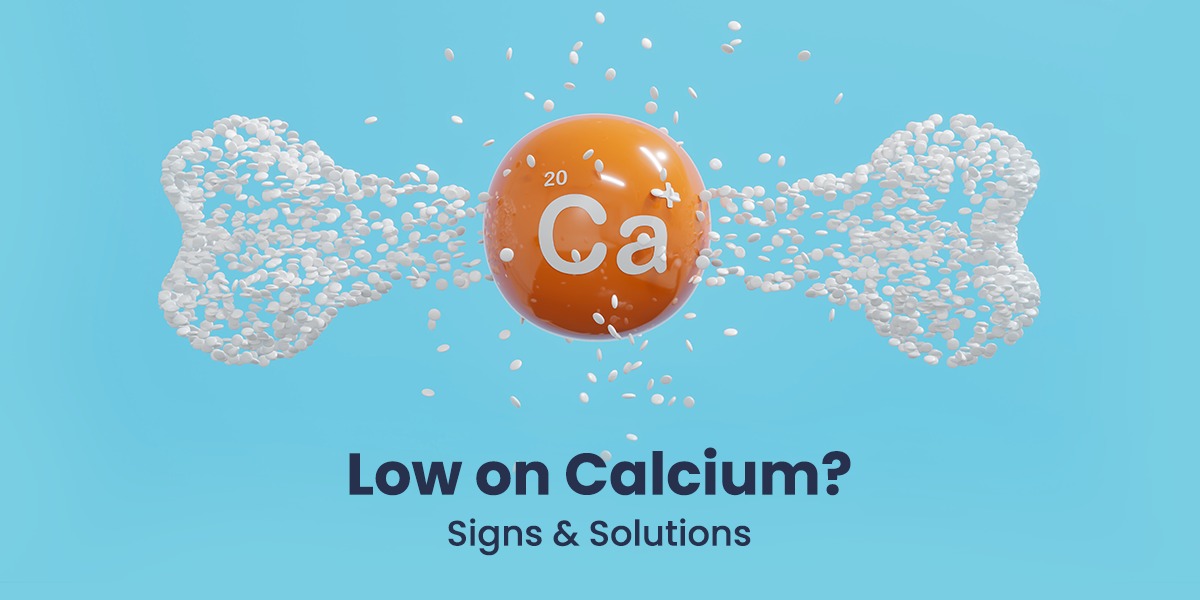Are You Low on Calcium? Signs, Causes & Treatments for Hypocalcemia

Hypocalcemia is a state of the body when the level of calcium dissolved in the blood is low. Calcium deficiency can occur due to different reasons. Several health conditions are responsible for low calcium content in blood. This state of the body is curable with proper treatment. Mild, severe to chronic, hypocalcemia has different symptoms and causes. Let us undermine them.
Refer to the best endocrinologist in Kanpur and Lucknow to get suggestions on your condition and medication for hypocalcemia.
What Is Hypocalcemia?
Hypocalcemia is a state of the body when the level of calcium in the body is low. There are different ailments which can be the reason for hypocalcemia, which often results from abnormal levels of parathyroid secretion. Sometimes, the lack of adequate amounts of vitamin D in the body is also a reason for hypocalcemia.
Role of Calcium in the Body: What Causes Hypocalcemia
Calcium is one of the most required components and minerals for body development. It is essential for bone health and a sturdy skeleton system. Most of the calcium deposits in the body are in the bones. The dissolved calcium in the blood is essential for nervous functionalities and making one’s muscles supple. A low level of calcium in the body also hinders other potential cognitive actions. You need calcium in your bones to make them strong and prevent fractures.
When calcium is not consumed through food or supplements, the calcium deposits of the bone are broken down to release calcium ions in the blood. This can weaken the bone and lead to osteoporosis. There are two hormones responsible for calcium breakdown and release, parathyroid hormone and calcitonin. Consumption of vitamin D is also essential for calcium maintenance and regulation in the body.
Hypocalcemia Symptoms
People with lower levels of hypocalcemia often do not show any symptoms initially. Hypocalcemia symptoms begin to show up when the condition gets acute or severe. Here are some common symptoms that one can diagnose when facing hypocalcemia:
- Muscle cramps are common in the areas of the legs, hip and back.
- Scaly and dry skin.
- Brittle nails.
- Having dry and coarse hair.
- Seizures
If untreated for too long, the symptoms of hypocalcemia can gradually elevate, affecting the neurological system of the body. Some Common psychological impacts of hypocalcemia include:
- Lack of memory or blurring
- Confusion
- Irritability
- Hallucination
- Depression
Other symptoms of acute hypocalcemia include a tingling sensation in the tongue, lips, legs, arms and feet. Muscle aches, spasms, seizures, and abnormal heart rhythms are also accompanied when there is a lack of calcium in the blood. A prolonged stage of hypocalcemia can also lead to congestive heart failure.
Comprehending the Causes Of Hypocalcemia
Many complex reasons can cause hypocalcemia in an individual. Maintaining a steady level of calcium in the body can be challenging under such circumstances. Levels of parathyroid hormone secretion and vitamin D in the body are responsible for the lack of calcium ions in the bloodstream. Here are some of the common hypocalcemia causes:
- Hypoparathyroidism: The Parathyroid Gland is responsible for the production of parathyroid hormone. However, when the gland does not produce enough of the hormone, there is a decrease in the level of calcium synthesis and absorption in the body. It can be an inherited disorder or due to surgical removal of the parathyroid and thyroid gland.
- Kidney failure: Chronic renal failure and kidney issues can increase the level of phosphorus in the blood and decrease the production of vitamin D.
- Vitamin D deficiency: Due to a lack of vitamin D in the body, the calcium level in the blood can drastically decrease. Stand under the sun and consume supplements to maintain vitamin D concentration in the body.
Hypocalcemia Treatment: Medications and Cure
- Oral calcium supplements can restore the level of calcium ions in the bloodstream.
- If you are taking certain medications that are causing the side effect of reduced calcium in the body, then discontinue the medicine or speak to a healthcare expert.
- Vitamin D supplements bring back the normal level of vitamins in the body, aiding in calcium production, synthesis and maintenance.
- IV injection or calcium gluconate is given to patients with severe hypocalcemia who need immediate attention due to chronic spasms and muscle cramps.
Conclusion
Hypocalcemia is a state of the body which is caused by calcium deficiency in the body. Addressing the situation at the right time can help you avoid major health complications and abnormalities. From oral medications to lifestyle changes through diet, hypocalcemia can be managed and cured effectively.
You may also read: Types of Deficiencies and their Solutions
Request a call back


 Call-an-Ambulance
Call-an-Ambulance



